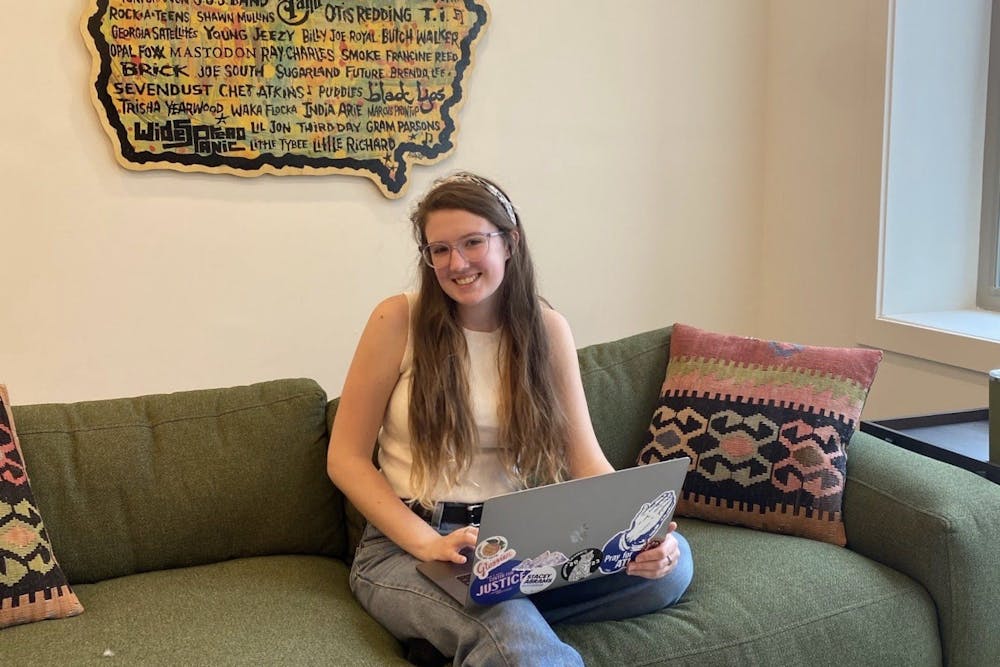When Katherine Brubaker ’24 checked her inbox in July and learned her semester would be fully online, her next step was anything but clear. In fact, she spent a month “going back and forth a million times” about whether to remain enrolled. Eventually, she decided to take a leave of absence.
Instead of enjoying the brief respite after fall midterms, Brubaker is making calls from Cape Cod, Mass., where she works as a (remote) field organizer for the Colorado Democratic Party’s Coordinated Campaign. Until 11 p.m. seven nights a week, she urges voters to make their voices heard and help elect Democrats up and down the ballot.
After examining the prospect of life as a virtual student, Ben Bograd ’23 reached the same conclusion as Brubaker. “I didn’t feel like all the things I loved most about school would have been available to me if I was doing a virtual year,” Bograd said.
For Bograd, there was “no better time” to participate in something outside of school than the few months before the 2020 election. He is now interning for Sara Gideon’s (D) senatorial campaign in Maine.
Several of the 713 Princeton students currently on a leave of absence have followed the same path: the 2020 election convinced them not only to take time off, but to take action.
For some students, such as Luke Shannon ’24, a data analysis fellow for Democrats in Nevada, taking a gap year offered their very first venture into political work.
“I definitely jumped at that opportunity,” Shannon said. “I’m looking to give something to the world ... I’m really happy that I was able to find the presidential campaign as an opportunity to do that.”
Grace Houlahan ’25 is working as a field intern to support her aunt, Chrissy Houlahan (D), in her campaign for a U.S. House seat in Pennsylvania. “This is the first time I’ve been hands-on this close to an election,” she said.

For others, working in politics is nothing new.
Mary Elizabeth Marquardt ’23, who is on a semester’s leave of absence due to Advanced Standing, interned for Stacey Abrams’ gubernatorial campaign in 2018. She is now a regional organizing director for the Legislative Victory Fund, a branch of the Georgia Democratic Party seeking a Democrat majority in the Georgia State House.
“I decided that I really wanted to build on this experience this semester,” Marquardt said. “I thought it was an important time to do the work that I want to commit myself to.”
Each of these students noted the rewards and challenges that accompany campaign work.

Rosie Eden ’25, an intern with Martha McSally’s (R) senatorial campaign, said she has learned a lot from phone banking in particular.
“A big part is getting to interact with other voters in Arizona and see what people are interested in,” she said. “You get some people who either don’t want to be called or really don’t like the candidate. Instead of politely declining or something, they get a little aggressive.”
Brubaker recalled similar encounters with angry voters. “My skin has toughened up,” she said.
She’s had success stories, too — swaying an undecided voter, signing someone up for volunteer hours, or even getting a simple thank you keeps her motivated. “Those calls just make the day worthwhile,” she said.
For Marquardt, working in a team has made campaign work especially fulfilling.
“Being able to work every day with people who you know are so passionate and who are so dedicated to things that really matter is really rewarding,” Marquardt said.
Reflecting his work in data analysis, Shannon stressed the need for dedication — any mistakes could have severe consequences for the campaign.
“We don’t want to lose a single voter. So doing our best to make sure we don’t do that requires a lot of rigor and attention,” he said.
Bograd agreed. “Every day there is some other thing at stake,” he said.
Although they work for campaigns on different sides of the aisle, students frequently agreed about the election’s central issue: voter turnout. Some are even working on non-partisan initiatives to address the concern.
Beyond his campaign work, Bograd is involved with The Poll Hero Project, which seeks to register young people to serve as poll workers. So far, the organization has helped register more than 35,000 poll workers.
Patrick Newcombe ’25 is a co-founder of FroshVote, a student-led grassroots organization that encourages first-year college students who live in swing states to vote.
“There are few things more rewarding than seeing a student, who didn’t realize they could register to vote, hit the button and register,” Newcombe said. FroshVote has reached 1,200 student voters since August.
According to Newcombe, his team has focused on registering voters, amid the “backdrop” of the imminent national election.
Marquardt also acknowledged that the presidential election has garnered much more attention from voters than previous cycles. The Legislative Victory Fund, however, emphasizes long-term change through electoral politics. “We talk a lot about how lasting power is built at the local level,” Marquardt explained.
“The work is never in one election,” Marquardt added.
These Princeton students care deeply about national politics — but their service is personal, too.
Brubaker noted her newfound independence, confidence, and interpersonal skills. The experience, she said, “has taught me to look outside of myself.” She explaining that for the first time, she has stepped away from academic pressure.
Marquardt said that her time off would grant her a more balanced outlook when she returns as a student in the spring. “The stress of Princeton University can weigh on your soul,” she said.
For all the merits of academic study, a gap year has cultivated a different, equally important, skill set for these students — one they couldn’t have developed in the classroom.
“There’s no better way to learn about politics and how it works than to be on a campaign,” Bograd said.
Newcombe agreed. “It’s never too early to exercise our civic responsibilities,” he said.








